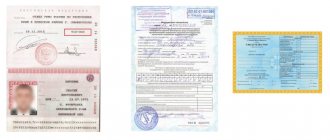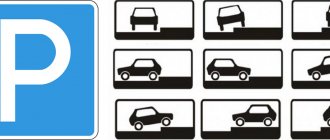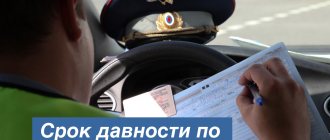One of the most severe administrative penalties for undisciplined drivers is traditionally the standard procedure in the form of deprivation of rights and the imposition of a hefty fine . You will read in this article how to act in this situation in order not to fall under even stricter sanctions from the state and not to provoke an excessive burden on your budget.
The recommended material will also help clarify important legal nuances and find out when you can pay only half the amount. In 2021, the fine for deprivation of rights while driving while intoxicated is paid in several ways - all available options are listed at the end of the text.
An advantageous offer from the partners of our portal - Terem Loan! Apply for a loan in the amount of up to 30 thousand rubles for a period of up to 30 days.
100% approval!
Get money
How are traffic fines paid?
The traffic police issues a resolution. The driver was speeding and the camera noticed it. It automatically sends a photo of the violation to the traffic police server. The traffic police officer receives the photo from the server and checks it. If there are no errors in the data about the driver and the car, he issues a decision.
The fine appears in the database. Information about the violation remains in the traffic police database and is duplicated in the state information system on state and municipal payments (GIS GMP).
The driver pays. As soon as the driver pays the fine, information about the payment will be sent to the GIS GMP.
The fine has been paid. After this, the debt disappears from the traffic police database - the driver has no debts on fines.
If the payment was made through “Traffic Police Fines”, the payment history is saved
How are overdue fines paid?
Despite the fact that the “expiration date” of traffic police fines is formally 70 days, they can be paid with some delay. The fact is that bank employees rarely pay attention to dates and calmly accept payments. All you need to do is go to the nearest bank branch with the order and make the payment. After this, you need to make a copy of the paid receipt and enter or even fax it to the traffic police. Thus, you will not have to pay a fine for an unpaid traffic fine, because the payment has actually been made.
It’s not worth taking risks in the hope that the bailiffs won’t find you. The article of the administrative code, according to which decisions on violations lose force and are not enforceable, does exist. However, it “works” only if the fault lies entirely with the bailiffs. In case of deliberate evasion of payment, it is not relevant. Moreover, if the fact of evasion is confirmed, the offender may face much more serious consequences. That is why every driver needs to know how long it takes to pay a traffic fine and make payments on time.
You can find out more about what will happen for an overdue traffic fine, the consequences of failure to pay traffic fines and liability for failure to pay a fine by calling the toll-free number.
Is it possible to pay the traffic police fine in installments?
Yes, the fine can be paid in installments. In paragraph 6 of the instructions for users of the GIS GMP database it is stated that there can be several payments for one accrual.
This can be done if the payer knows the payment details and is ready to patiently enter them in the bank terminal or in the bank application. You can find out the details in two ways:
- from a paper decree,
- on the State Services website.
Let's look at both options.
A paper order arrived. On the resolution form, after the description of the violation, there are details that can be used to pay the fine.
Using the details in the paper order, you can pay the fine at any bank. Example from 11.mvd.rf
An electronic fine has arrived. In the upper right corner of the State Services website, click on your name and initials and select “Review”.
Find the fine in your service history and click on it. A page with details will open.
Next, click “All details” - a window with details will open.
In case of partial payment, the money does not always reach the recipient. To prove payment, keep payment receipts.
It’s easier to pay the fine through special services - all you need is a car number and a vehicle registration certificate. You can pay in the first 20 days at a discount.
Deadlines for paying a fine for deprivation of rights while intoxicated
The financial part of the punishment is determined by the judge . He is also authorized to deprive of rights, and carries out this procedure in parallel with the imposition of a fine. As a result, the countdown for paying a fine for deprivation of a driver’s license after driving while intoxicated begins from the day the judge’s decision comes into force .
This happens in three ways:
- When delivering the order to the offender in the courtroom - after 10 days (excluding weekends) from the date of delivery.
- When sending a judicial act by mail by registered mail - upon receipt of such - after the same 10 days . When returning an unreceived letter - 10 days from the date of registration by the court office .
- When appealing in an appellate court - immediately, on the day the decision is made by the judge of the district or city court.
The deadline for the decision to enter into force in the magistrate’s court is counted taking into account holidays and days off - Sunday . So it would not be superfluous to check in detail with the secretary exactly when the driver’s license is transferred to the traffic police department.
The operative part of the judge’s ruling specifies the period within which the fine of 30,000 rubles issued for deprivation of rights must be paid. The period for voluntary fulfillment of this obligation is 60 days from the date the resolution enters into legal force.
It is easy to calculate that the offender has a minimum period to pay the fine of 70 days .
How to submit applications to pay a fine in installments
The law allows you to ask for installments for three months. Such a request must be sent to the traffic police inspector who issued the resolution.
To write an application. In your application, write the reason why you cannot pay the fine on time. Such a reason could be a difficult financial situation, illness, loss of a job or debt obligations to the bank. Complete the application with documents: a bank statement or a certificate from a medical institution.
Collect documents. You will need:
- copy of the passport,
- copy of the resolution,
- application for installment plan,
- certificates confirming insolvency.
The inspector will review the application within 30 days.
There are exceptions when you cannot ask for an installment plan or deferment:
- speeding fine;
- fine for transporting people or goods on vehicles not registered in the Russian Federation;
- fine for violating the requirements of signs and markings;
- fine for non-payment to the Platon system - for trucks heavier than 12 tons.
What happens if you don’t pay a fine of 30,000 rubles on time? for deprivation of rights
The imposition of a fine for deprivation of rights often causes violators to resort to external borrowing. In order to save them from interest payments, the state meets citizens halfway with understanding and gives them the opportunity to avoid delays in making mandatory payments. At the same time, at least a third of administrative offenders are interested in what will happen if they do not pay 30,000 rubles after deprivation of their rights. It is better not to try such an experiment, since it will only bring trouble.
Failure to pay it within the prescribed period is regulated by Part 1 of Article 20.25 of the Code of Administrative Offenses of the Russian Federation :
Failure to pay an administrative fine within the period provided for by this Code entails the imposition of an administrative fine in the amount of twice the amount of the unpaid administrative fine, but not less than one thousand rubles, or administrative arrest for a term of up to fifteen days, or compulsory labor for a term of up to fifty hours.
The algorithm for receiving punishment for failure to comply with a judge’s decision within the period established by law is as follows:
- The court makes a decision to impose a fine on the offender.
- The driver is notified of this . The resolution comes into force.
- From the date of entry into force of the resolution, the driver is given by law another 60 days for voluntary payment .
- After 60 days, the court office sends a resolution to the bailiff service department for forced collection of the debt.
- The bailiff initiates proceedings to collect funds for the unpaid fine and at the same time draws up a protocol on untimely non-payment under clause 1 of Article 20.25 of the Code of Administrative Offenses of the Russian Federation , which is sent to the same court.
Thus, every evader who does not want to pay a fine risks receiving a new one in double the amount , while the original fine must be paid. As a result, in a short period of time, a person deprived of his license for driving while drunk (and often a car is a source of income) owes the state not 30,000, but 90,000 rubles.
You should not lose sight of the enforcement fee, which is regulated by Part 3 of Article 112 of the Federal Law “On Enforcement Proceedings” and will also add costs:
The enforcement fee is established in the amount of seven percent of the amount to be recovered or the value of the recovered property, but not less than one thousand rubles from a debtor-citizen or a debtor-individual entrepreneur and ten thousand rubles from a debtor-organization.
The offender’s argument that he did not receive the letter and therefore did not know about the punishment is not taken into account. The protocol was drawn up by the policeman, and the driver knew about it. It is the responsibility of the offender to inquire about the further movement of the document.
Each subsequent unpaid fine again falls under Article 20.25 of the Administrative Code, so that penalties grow exponentially, like an avalanche, the cause of which was a minor, at first glance, imprudent offense.
Please note that a debt paid in full, but after 60 legal days, is also punishable under Part 1 of Article 20.25 of the Code of Administrative Offenses of the Russian Federation . That is, the payment is overdue, although it was made. So you need to count the days so as not to catch a new fine of double the amount.
What if the case goes to court and the fine is too high?
Alexander Torvard, auto lawyer Almost always a large fine is accompanied by deprivation of rights - and this is always a court case. It is at the trial that you can ask for an installment plan. In this case, of course, attach evidence of insolvency.
The court considers violations when, for example, the driver was drunk or left the scene of an accident. At the court hearing, voice your request and support your words with documents:
- application for installment plan;
- expected payment schedule;
- documents that confirm the impossibility of paying the fine.
If the judge takes into account all the explanations, the payment period will be increased to three months.
Also, the law allows you to ask for a delay of a month.
Is it possible to pay only half of the fine for deprivation of rights?
Most drivers are already aware that from January 1, 2021, clause 1.3 has been added Article 32.2 of the Code of Administrative Offenses of the Russian Federation :
When an administrative fine is paid by a person held administratively liable for committing an administrative offense provided for in Chapter 12 of this Code, with the exception of administrative offenses provided for in Part 1.1 of Article 12.1, Article 12.8, Parts 6 and 7 of Article 12.9, Part 3 of Article 12.12, Part 5 of the Article 12.15, part 3.1 of article 12.16, articles 12.24, 12.26, part 3 of article 12.27 of this Code, no later than twenty days from the date of the decision to impose an administrative fine, an administrative fine may be paid in the amount of half the amount of the imposed administrative fine. If a copy of the decision imposing an administrative fine, sent to a person held administratively liable by registered mail, was received at his address after the expiration of twenty days from the date of such decision, this period is subject to restoration by the judge, body, official, who made such a decision, at the request of a person brought to administrative responsibility. The decision to reject the said petition may be appealed in accordance with the rules established by Chapter 30 of this Code. If the execution of the decision to impose an administrative fine was delayed or spread out by the judge, body, or official who issued the decision, the administrative fine is paid in full.
At the same time, some manage to read inattentively and believe that any fine can be paid with a 50% discount within 20 days from the date of final consideration in court.
to reduce the amount of the penalty to 15,000 rubles . The paragraph states that Articles 12.8 and 12.26 of the Code of Administrative Offenses of the Russian Federation do not fall within its scope, and the 50 percent discount on fines for deprivation of rights does not apply, because these large sums are precisely imposed by the court for such serious actions with the goal that the violator will suffer maximum punishment.
However, the Code of Administrative Offenses provides for the possibility of reducing the amount of the fine ( clause 2.2, article 4.1 ):
In the presence of exceptional circumstances related to the nature of the administrative offense committed and its consequences, the personality and property status of the individual brought to administrative responsibility, the judge, body, official considering cases of administrative offenses or complaints, protests against decisions and (or) decisions on cases of administrative offenses may impose punishment in the form of an administrative fine in the amount less than the minimum amount of the administrative fine provided for by the relevant article or part of the article of Section II of this Code, if the minimum amount of the administrative fine for citizens is at least ten thousand rubles, and for officials - not less than fifty thousand rubles.
This article does not cancel the punishment, but provides for the possibility of mitigating it, taking into account the specifics of the situation. A judge may consider a mitigating circumstance when a drunk person drove a car to take a victim of an accident to the hospital. But the same or another judge may see this as an aggravating circumstance, because a drunk driver endangered the life of another person. The issue of exclusivity is decided by the court on an individual basis.
What if the payment was not completed in full?
If, during the check, the status of the fine remains “Unpaid,” then it still exists in the GIS GMP database.
This can happen for several reasons:
- the bank did not transmit payment information;
- the payer made a mistake with the details;
- failure in GIS GMP.
If the last fine payment did not go through, follow these steps:
- collect all checks and receipts from the bank;
- request information about them from the bank and make sure that the bank transferred the money according to the details;
- send payment documents to the traffic police by registered mail or with a personal visit.
- wait for a response. Duration: 10 days.
What happens in case of non-payment?
Every motorist who is late in paying a traffic fine runs the risk of ending up in the hands of bailiffs who will demand the due amount in every possible way. In this case, the amount of debt may turn out to be much larger than the original one. The case materials are transferred to bailiffs after the expiration of the 90-day period. The countdown begins from the date on the postmark (if the decision is sent by mail).
For an overdue traffic fine, the consequences can be very dire. In particular, in addition to the required compensation, the offender will have to pay another one - double the amount. In addition, he may face imprisonment for 15 days or up to 50 hours of mandatory correctional labor. The penalty is determined by a court decision. If the fine is paid within 10 days after the deadline for payment, the judge will most likely limit himself to double the amount of compensation. Also, administrative arrest is not considered as a punishment if the traffic violation was recorded by photo or video recording.
What are the consequences for failure to pay a traffic fine in the long term? If the bailiffs do not show much zeal in searching for the offender, then after two years he will be able to breathe a sigh of relief, since this period measures the statute of limitations for cases of this nature.
Remember
- You can pay the fine in part, but to do this you need to know the recipient's details. They can be viewed on a paper decree or on public services.
- Even if you pay the fine in installments, you must do so within 70 days from the date of the decision.
- If the fine is large and there is no money to pay, write an application for installment payment and submit it to the person who is considering the violation case - an inspector or a judge.
- If you paid in installments and the fine has not been paid off in the traffic police database, check that the details are correct. If everything is correct, send checks and receipts to the traffic police by registered mail or with a personal visit.
All articles by the author: Evgeniy Lesnov
What are the consequences of payment evasion?
If you do not pay the fine on time, then paperwork will open under Art. 20.25 Code of Administrative Offenses of the Russian Federation. Under this article, violators who evade payment of issued decisions are held accountable. Article 20.25 provides for the following penalties: a fine of twice the amount of the unpaid order, arrest for 15 days or community service in the amount of 50 hours. Draw up a protocol under Art. 20.25 traffic police officers can stop your car for inspection. This can happen at the airport when going on vacation abroad and in other cases. One can hope that the paperwork under Art. 20.25 will not begin within 5 months after the resolution comes into force (2 months to pay off the fine and 3 months to initiate an administrative case under Article 20.25) due to the workload of the employees of the administrative practice department of the traffic police. However, office work is increasingly automated with the help of computers and special programs. Thus, the development and improvement of MADI software (the supervisory authority for compliance with parking rules in Moscow) made it possible to attract offenders in almost 100% of cases. In addition, unpaid fines are sent to bailiffs for forced collection, and this threatens to block bank accounts and automatically write off fines. It is worth remembering that the punishment under Art. 20.25 of the Code of Administrative Offenses of the Russian Federation does not exempt from paying a fine. Thus, if you fail to pay 30,000 rubles on time, you will lose 60,000 rubles. You shouldn’t count on “maybe it will blow through” and it’s better to pay the orders within the time limits provided by law.











